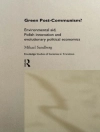Western economies have become stuck in a protracted depression that began long before the 2008 crash. Low productivity, which started in the 1970s, has prevented durable rises in living standards.
Phil Mullan shows that the only way to ensure a better future is to create one, calling for a comprehensive economic restructure backed by political and cultural change. This means embracing the uncomfortable disruption involved in progressive change, rekindling in democratic form a spirit of Enlightenment thinking. The votes for Brexit and in the US presidential elections in 2016 indicate that many people desire change, offering greater opportunity for this public discussion.
What is needed is a new industrial revolution which develops a broad range of emerging and yet unimagined services and products, provides decent jobs and restores prosperity. Providing examples of the new technologies needed to drive change, backed up by a wealth of data, this important book calls for a sea-change in imagination and thinking.
Tabla de materias
Introduction: A decade after the Western financial crisis
Part I: The state we’re in
1 Decay and resilience
2 Productivity in decline
3 Innovation puzzles
4 Why investment matters
Part II: The Long Depression
5 The problem of profitability
6 The end of growth
Part III: How we got stuck
7 Contained depression
8 The zombie economy
9 The intellectual crisis of capitalism
10 Discomfort with change
11 The appeal of muddling through
12 The limits of muddling through
Part IV: The way out
13 Escaping the Long Depression
Sobre el autor
Phil Mullan is an economist and business manager, who researches, writes and lectures on economic, demographic and business issues. Currently working independently, in 2014 Mullan completed eight years in senior management roles with Easynet Global Services, an international communications services company. Previously he had been chief executive of the internet services and training company Cybercafé Ltd.












